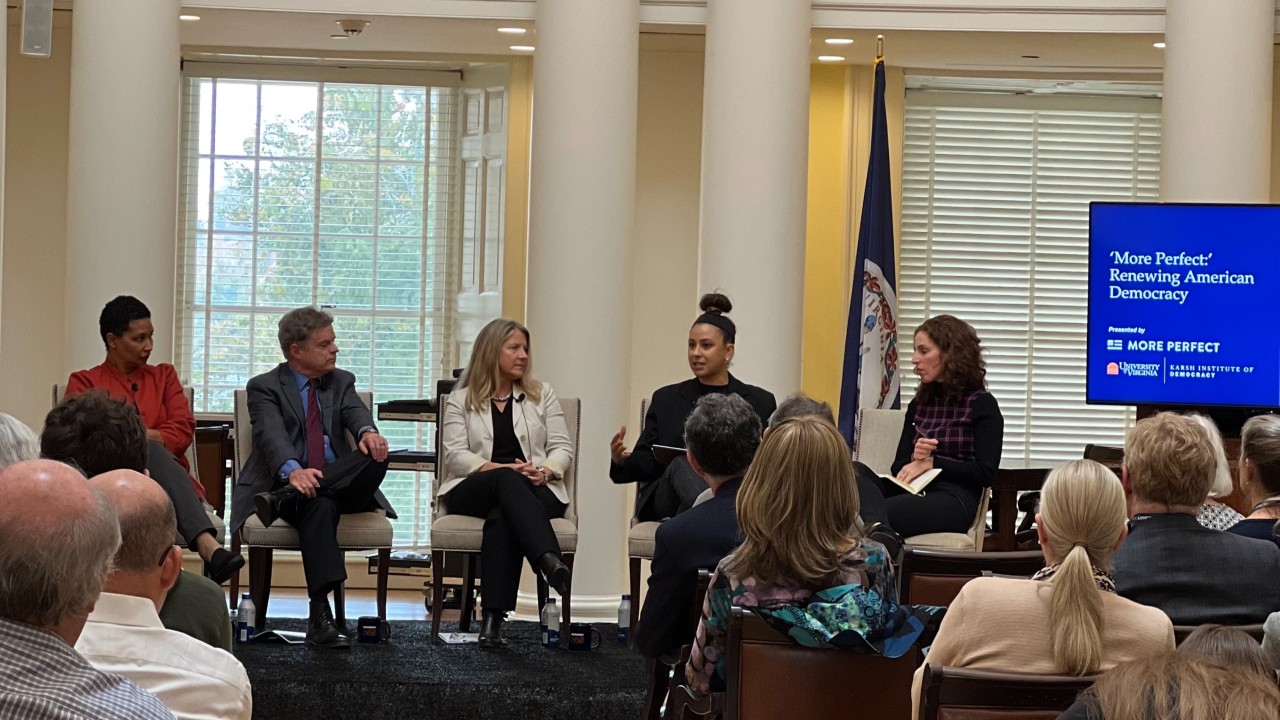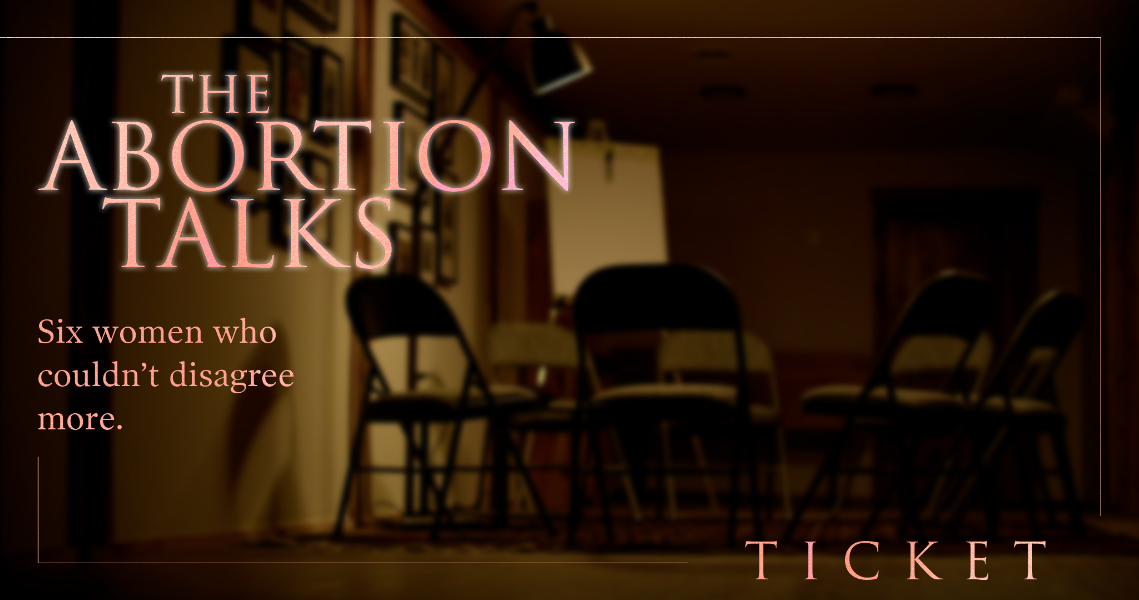Radical Socialists and Christian Nationalists and (Semi) Fascists ... oh my!
Happy 2023! In the wake of the recent midterm elections, many cross-partisan reformers, democracy defenders, and political bridge-builders are expressing feelings ranging from relief to cautious optimism to outright hope about America’s ability to repair, renew, and strengthen our relationships and institutions.
We've been busy since our last newsletter ... scroll down for exciting updates and invitations!
Before and during Election Day 2022, Americans of all backgrounds and beliefs - Republicans, Democrats, Independents, and others - joined together in exercising our sacred duty as citizens in a representative democracy. As candidates, as election officials, and as voters, we reminded ourselves that we are capable of choosing our elected representatives efficiently, competently, graciously, and peacefully. Here's a key takeaway from the 2022 midterms:
The vast majority of Americans, whether left-leaning or right-leaning, are highly committed to preserving the American experiment in representative, "small d" democracy.
The midterms also saw many jurisdictions using ranked choice voting (RCV), and others voting to adopt it in the future. (To learn more about RCV and its potential to reduce division and dysfunction while improving representation, please read FairVote’s “2022 Ranked Choice Voting Year in Review.”) At Civic Health Project, we are optimistic about the potential for election innovations - including RCV, open primaries, and their combined impact via “Final 4” or “Final 5” voting - to improve civic health by deterring demonizing, hyper-partisan politics.
Unfortunately, until more healthy cross-partisan innovations like these are adopted, American voters will likely continue to be subjected to the alarmist, existential rhetoric that dominated both left-leaning and right-leaning airwaves in the run-up to 2022 midterms. Throughout Summer and Fall 2022, any voter tuning into Democratic campaign and media platforms was barraged with warnings to prevent “Semi-Fascists” and “MAGA Republicans” from gaining political ground. Conversely, any voter tuning into Republican platforms was urged to turn back the “Radical Socialist Left” in the voting booth.
Inevitably, such toxic, warlike turn-out-the-base rhetoric - deployed with cynicism and abandon by campaign operatives - leaves a damaging residue across the country, as each of us is pummeled for months with assertions that our fellow Americans are not just voters with different preferences but “the enemy within.” Unfortunately, we will all barely have time to recover from this recent round of brainwashing before the 2024 presidential election cycle - and the accompanying, toxic rhetoric - starts ramping up in earnest.
In the face of relentless rhetoric and endless campaign cycles that aim to divide us, what can we do? For starters, we can know better. We can reject the tired tropes, the warlike rhetoric, the “us versus them” framing, and the notion that other Americans are out to destroy democracy simply because they vote differently from us. We can celebrate the fact that millions of us came together in November 2022 to express our political preferences peacefully, via the voting booth. And we can continue to work together, in 2023 and beyond, to deploy election innovations that discourage extremism and encourage collaboration in our local, state, and federal governments.
For more about what we can all do to reject division and embrace our shared values as Americans, check out our latest blog post from guest bloggers Heidi and Guy Burgess, co-founders of Beyond Intractability, in conversation with Civic Health Project's Kristin Hansen. You can also jump directly to the full transcript or watch the video of Kristin, Heidi, and Guy.
Here’s to a peaceful, productive, and depolarizing 2023!
FILM SCREENING: You're Invited!The Abortion Talks: Six Women Who Couldn't Disagree More
Saturday, January 21 | 6:30 pm ET | 3:30 pm PTIn-Person @ Fifth Avenue Presbyterian Church, NYC register hereVirtual Screening @ register hereHosted by Braver Angels
Civic Health Project is a proud funder of The Abortion Talks, a timely and riveting documentary from filmmakers Josh Sabey and Sarah Perkins. Want to host a screening? Fill in the inquiry form here.

"Excellent, important, timely, and needs to be discussed widely."
Dr. Peter Coleman, author of
The Way Out
"A fair, clear, and intriguing treatment of both sides."
Fran Hogan, past president of Women Affirming Life
"A powerful documentary right when we need it."
Melissa Kogut, past executive director of NARAL Pro-Choice MA
In the aftermath of John Salvi’s 1994 murder spree at two Brookline abortion clinics, leaders from opposing sides of the abortion debate met together in secret talks.Essential Partners, formerly the Public Conversations Project, hosted these talks and subsequently published this guide to help other organizations to address one of America's most divisive subjects - abortion - with sensitivity and civility.Register for the NYC or Virtual Screening

Remarkable Reading
Why should educators help depolarize America? How can Grade 6-12 teachers across all subjects - including but not limited to social studies, civics, government, and history - equip students with the listening, deliberating, and discourse skills needed to thrive in the 21st century?
Kent Lenci, middle school teacher and founder of Middle Ground School Solutions, poses and answers these questions brilliantly in Learning to Depolarize, a well-researched, accessible, and entertaining book for all educators who care about raising up a generation of bridge-builders and problem-solvers.
Read the Book | Buy It for a Teacher

Grant Opportunity (apply by Mar 1, 2023): Strengthening Democracy Field Test Grants
The Strengthening Democracy Challenge (SDC), funded by Civic Health Project, brought academics, practitioners, and industry experts together in a collective effort to identify interventions to improve Americans' partisan animosity, support for undemocratic practices, support for partisan violence, and other outcomes related to polarization and democracy.
The Challenge team is now accepting proposals for Bridging Divides & Strengthening Democracy Field Test Grants! Grants of up to $50,000 will be allocated on a competitive basis to new or existing teams of practitioners and researchers. Ideal proposals will consist of field experiments (randomized controlled trials) that evaluate how well the findings from the SDC apply to real world outcomes. The Challenge team plans to fund up to five promising projects that would improve both scientific and applied understandings of the relevance of the SDC findings in real-world settings.

Enriching Event
The Council on Technology and Social Cohesion will host its first public conference, Designing Tech for Social Cohesion, this Febrary 23-24 at San Francisco's Fisherman's Wharf. Register today to take advantage of the excellent programming, networking opportunities, and inspiring venues. Confirmed, "can't miss" speakers include Tristan Harris from the Center for Humane Technology, Shamil Idriss from Search for Common Ground, Audrey Tang who currently serves as Taiwan's Digital Minister, Lisa Schirch from Toda Peace Institute, Ciaran O'Connor from Braver Angels, Julia Coffin from More in Common, and spokespeople for innovative platforms such as Gatheround, Remesh, Conntix, BuildUp, and Soliya, among others. Civic Health Project's very own Julia Kamin, Dir. of Research and Evaluation, is also a featured panel speaker!
Register for Designing Tech Conference

Concerned about division in America? Looking for a way to help? By donating to Civic Health Project, you can play an outsized role in mending America’s political and social fabric, for the benefit of current and future generations.Download our Investor Prospectus to find out about how your contribution to Civic Health Project helps address our political and social divisions with practical solutions. Because we cover all of our operational costs, 100% of donations we receive are redistributed as grants to nonpartisan, nonprofit organizations, typically within 6-12 months of receiving the funds.Read our ROI white paper to understand how we hold ourselves and our grantees accountable for evidence-based outcomes. Read the Democracy Funders Network's Funders Guide to Building Social Cohesion to learn more about the broad landscape of organizations working to repair America's social fabric.
.png)




.png)
